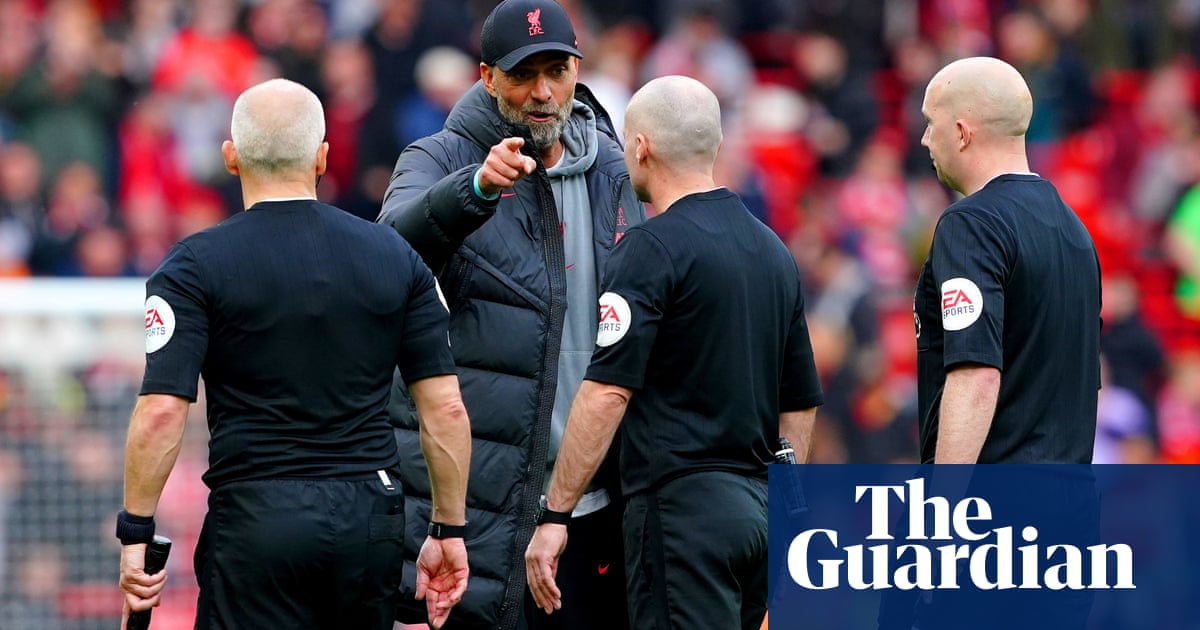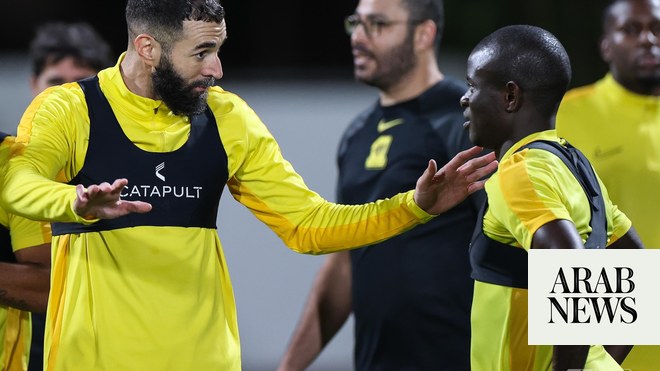
“When you think about refereeing it’s very much about confidence,” says Howard Webb. “It’s a mental discipline, you need resilience to be successful at it. My job is to make sure that referees are going into their job feeling confident and supported.”
After eight years away, the most successful referee of the Premier League era has come back to the English game. His contract overseeing officials in the US had come to an end and he had been in discussions about coming home in some form for a while, but Webb’s appointment as the first chief refereeing officer in the elite game has the feel of a necessity, as – by common consent – the men in black need all the help they can get.
At the peak of his refereeing career, in 2010, Webb took charge of a Champions League final and a World Cup final within a month of each other. He was also labelled a secret Manchester United fan before social media made accusations of bias fashionable. So, on and off the pitch, he has some sense of how refereeing works. Now he will be expected to spend the money assigned by the Premier League as part of its Elite Referee Development Plan and deliver on its expected returns.
Webb’s experience working in the States has obviously given him some ideas, but there remain some real challenges that won’t be easily unpicked, most obviously in the form of VAR. Webb calls himself a “big exponent” of video refereeing, an attitude he dates back to seeing Thierry Henry handle the ball against the Republic of Ireland on the way to the 2010 World Cup, and his own experience of missing Nigel de Jong’s kung fu kick on Xabi Alonso in the final. “That decision lives with me,” he says. “I wanted to get it right, but I clearly didn’t see it right. So why not have the opportunity to go and rectify the error in real time there and then?”
The role of VAR is clear to Webb: it should be there to provide peace of mind to officials, not re-referee the game. “My job is to make sure we get the consistency around the question VARs have been told to ask themselves: was [the referee’s decision] clearly wrong?” he says. But he also acknowledges that the simple existence of the technology can create unintentional consequences.
He describes VAR as a safety net, and referees as tightrope walkers. The safety net can change the referee’s approach to a task and make them less concerned about making a mistake. “A lot of our work has to be around making sure they walk on that tightrope as if the safety net wasn’t there,” he says. He also wants referees to be more willing to reject the advice of a VAR, especially when they are called to the pitchside monitor, but knows too that referees are listening to peers who might be conveying their advice forcefully. “I’ve never refereed with [VAR] so how it affects your psyche as a ref I don’t really know personally,” he admits.
A second great challenge is to improve referees’ decision-making in the first place. Webb insists that standards have improved since he put down his whistle in 2014, but says that the speed and complexity of elite football has risen even faster. He also accepts that, whatever the statistics say, any improvement is not regularly perceived by fans. “Clearly the fact that there’s been a change, that I’ve been brought in, suggests there’s a feeling that we need to raise standards even further,” he says. “There’s an expectation they will get better.”
Alongside an expanded recruitment programme and more coaching for referees (with former Premier League officials Jon Moss and Martin Atkinson already recruited in such roles) Webb believes that consistent communication will be key to improving things. In the US he got into the habit of setting up referees and officials with broadcasters after each round of fixtures to discuss contentious decisions and believes this both informed media coverage and broke down mystique. He is hopeful of doing something similar in England but accepts even this comes with risks. “You don’t want to turn referees into celebrities,” he says. “But as it stands there’s clearly a feeling that perception [of refereeing] could be better and the level of transparency could be better. And I think that’s right.”
Webb says that in the US, where football is an insurgent sport looking to challenge established favourites, the message when talking about refereeing and VAR was “don’t kill the project”. Allow for criticism, yes, but get behind what the game was trying to achieve. A different kind of attitude will be necessary in England if the rehabilitation of refereeing is to be achieved.
“I think there’s probably less forgiveness here, generally speaking,” Webb says. “The relationship with football here is engrained, that leads to some resistance to change. The scrutiny any information comes under over here is different to anything you get over there.”
Aspirations of transparency and openness can often get waylaid when a desire for change meets the reality of English football. But Webb has succeeded before and done the hard yards of learning before taking on the impossible job, refereeing edition. In an age of ubiquitous media he also has the charisma and self-confidence required of a leading figure in the game. If the aim is to convince the nation that a dubious handball penalty decision is the result of simple human frailty and not the result of a sophisticated conspiracy, he has as good a chance as most.












